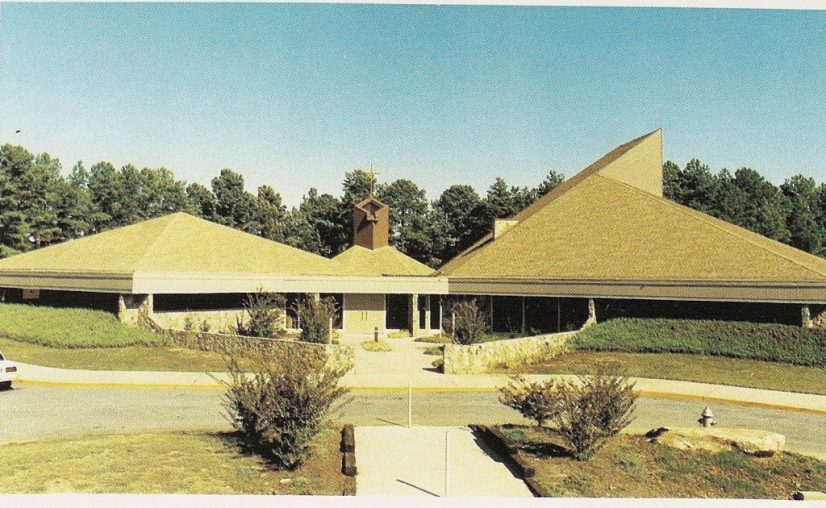Baptism
Holy Baptism is the basis of the whole Christian life, the gateway to life in the Spirit and the door which gives access to the other sacraments. Through Baptism we are freed from sin and reborn as children of God; we become members of Christ, are incorporated into the Church and made sharers in its mission.
WHAT ARE THE REQUIREMENTS FOR BAPTISM?
In order to help the parents prepare for Baptism, and to help the infants to grow in faith as they grow in age, the Church has certain requirements for Baptism. Each child should have one, or more frequently two, godparents. If there are two godparents, one should be a man and the other a woman. The godparents’ role is to help the child’s parents in their task of teaching the Catholic faith to their children. Because their task is to model the Christian life for the baptized child, it is necessary that each godparent be someone who is a confirmed adult Catholic who lives and practices his faith6. They may be married or single, but may not be married outside the Catholic Church. Non-Catholic Christians can be present as a Christian witness, but because they are not prepared to share the fullness of the Catholic faith, cannot serve as godparents. Parishes may establish other requirements for the reception of Baptism, often requiring a preparation class7 for the parents or godparents, but these requirements are not intended to prevent anyone from receiving the sacrament, and should be adjusted in special cases8.
Holy Communion
WHO CAN RECEIVE HOLY COMMUNION?
Because Holy Communion is one of the most precious things that Jesus has given to us, it is important to prepare ourselves properly before receiving. In the Roman Catholic Church, once a child is old enough to understand that the Eucharist is the gift of Jesus’ own life, he receives careful preparation so that he may receive his First Holy Communion. In addition to learning the truths about the Eucharist, the child prepares himself spiritually, receiving the Sacrament of Reconciliation, so that he might receive Holy Communion with a pure heart.
For adults, too, careful preparation is necessary before receiving Holy Communion. Because Holy Communion is a sign of unity with the Catholic Church, one should only receive Holy Communion if he believes what the Catholic Church teaches, and is living as a member of the Church, following the way of life that she sets out for her children. If one is conscious of serious sin, he should receive the Sacrament of Reconciliation before approaching Holy Communion.
HOW DO I PREPARE TO RECEIVE HOLY COMMUNION?
Holy Communion is a great mystery, to be approached with reverence and awe. On the feast of Corpus Christi, the Church sings that Holy Communion brings “life to these, to those damnation / see how like participation / is with unlike issues rife.”2 This hymn draws its inspiration from the Holy Bible, where Saint Paul writes, “anyone who eats and drinks without discerning the body eats and drinks judgment upon himself.”3 Holy Communion is a great spiritual gift, but it also requires great respect.
The most important preparation is spiritual. Many Catholics choose to take some time for private prayer before mass to prepare for Holy Communion. In order to receive Holy Communion worthily, individuals with serious sins first need to receive forgiveness in the Sacrament of Reconciliation. Confession is also a valuable preparation for those with lesser sins, and most parishes provide it at a convenient time for those who desire to receive Holy Communion at Sunday Mass.
The Church offers various aids to help Catholics prepare themselves for Holy Communion. She requires a fast of at least one hour before receiving Communion. 4 This fast includes all food and drink except for water and medicine, but it does not apply to the ill or elderly. Some Catholics find it helpful to fast for a longer time, even from the night before, in order to be better prepared for Holy Communion. Time spent praying in thanksgiving after receiving Holy Communion is also well rewarded.
WHAT IF I CAN NOT RECEIVE HOLY COMMUNION?
There are many individuals who will not be able to receive Holy Communion at any given mass. These include children who have not yet made their First Holy Communion, non-Catholics who may be in the congregation, those who have not made the necessary fast before mass, and individuals who are in a state of sin, including those who are living in irregular marital situations.
While the worthy reception of Holy Communion is a great gift, it is not necessary for a Catholic to receive Holy Communion at every mass. Participation in the mass gives glory to God and can be of great spiritual value even when one does not receive Holy Communion. Those who do not receive Holy Communion can join with the whole community in prayer, asking God’s blessing upon themselves and upon the whole world.
At times it may be painful not to be able to receive Holy Communion. For Catholics, this may serve as an invitation to speak with a priest who can help them return to full communion. For non-catholics, it can be an inspiration to pray for greater union among Christians. The Catholic Church invites all people to communion, but full communion means a choice to embrace the teachings and way of life that the Church has received from Christ and continues to propose to the people of today.
Each time we receive Holy Communion well, we not only receive the Body of Christ, but become more deeply united to Christ in His Body, the Church. This great gift calls for great preparation, and invites us to give the rest of our lives to Jesus, as well.

